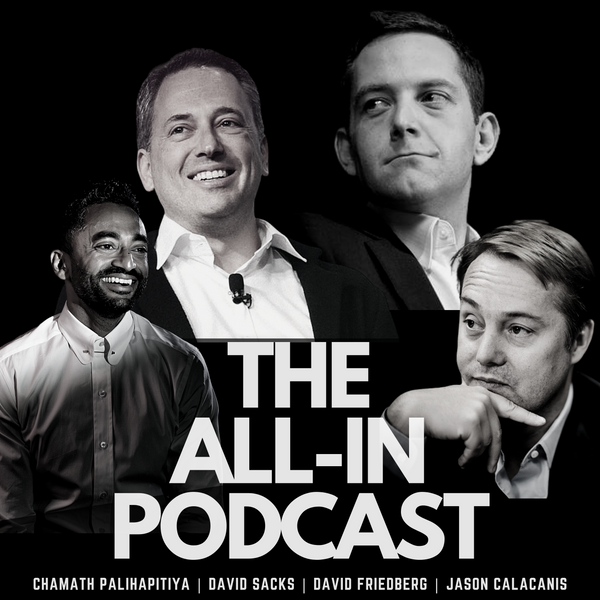From All-In to All-Out: Why We Need Fresh Voices in Tech Commentary

My boyfriend and I are devoted listeners of the All-In podcast. Every Friday, we play a game called "pod predictions" where we try to guess which topics the "besties" would cover that week. Then we queue up the episode featuring Chamath Palihapitiya, Jason Calacanis, David Sacks, and David Friedberg, eager to see how our predictions played out.
For those unfamiliar, All-In started as four successful Silicon Valley investors and entrepreneurs getting together to discuss the big issues of the day. Think of it as a roundtable where VCs dissect current events through the lens of business, technology, and markets. They cover everything from AI developments and startup valuations to inflation, foreign policy, and cultural debates. The format is conversational and at times contentious, which initially made it compelling.
What Made All-In Work (At First)
In its early days, the podcast offered something genuinely valuable: smart people with different perspectives having substantive debates through friendly banter and genuine exchange of ideas. The format made you feel like you were sitting at a roundtable with them, overhearing the kind of conversations that usually happen behind closed doors in Silicon Valley. Chamath brought his contrarian edge and data-driven approach. Sacks offered his libertarian-leaning political analysis. Friedberg provided scientific rigor and climate expertise. And Calacanis aggrandized his role as an "early investor of Uber."
The show filled a gap in the podcast landscape. Most business podcasts are either too dry or too promotional. All-In had personality, conflict, and the kind of insider knowledge that comes from actually building and funding companies at scale.
The Shift I Can't Ignore
Over the past year, particularly around Trump's political resurgence, the dynamic has shifted. What once felt like four independent thinkers has increasingly felt like two camps: Chamath and Sacks on one side, often defending or explaining away Trump's positions, while Calacanis and Friedberg push back with varying degrees of success.
The transformation of Chamath and Sacks into what feels like Trump apologists has been jarring. These are sophisticated investors who built their reputations on analytical rigor, yet they've increasingly adopted talking points that feel more like partisan spin than thoughtful analysis. The intellectual honesty that made the show compelling has given way to what often sounds like rationalization.
The Echo Chamber Problem
This shift reflects a broader issue in tech (and political) commentary: too many of the loudest voices come from the same narrow slice of Silicon Valley elite. They're mostly wealthy, mostly male, mostly from similar backgrounds, and increasingly, they seem to be talking primarily to each other rather than grappling with diverse perspectives.
When your hosts are worth hundreds of millions or billions, their relationship to economic policy, regulation, and social issues is inevitably shaped by their position at the top of the pyramid. That's not inherently wrong, but it becomes problematic when it's presented as universal wisdom rather than the specific viewpoint of tech's upper class.
What We're Missing: "All-Out"
So...what about the idea of creating an alternative – let's call it "All-Out" for now just as a placeholder (it's an existing podcast for gay men) – that tackles the same weekly topics All-In covers, but with diverse perspectives and intellectual honesty as its core principles.
Imagine a show that discusses AI regulation with voices that include not just investors, but also researchers and workers whose jobs are being transformed. Picture debates about housing policy that include not just VCs who've invested in proptech, but also urban planners, landlords, and renters. Think about foreign policy discussions that go beyond "what's good for American tech companies" to consider broader strategic implications.
"All-Out" would maintain the smart, substantive tone that made All-In appealing while bringing in voices that have been largely absent from these conversations.
Why This Matters Now
We're living through transformative changes in technology, economics, and society. The decisions being made now about AI governance, climate response, economic policy, and social media regulation will shape the next generation's world.
We deserve commentary that takes these challenges seriously, that brings together the best thinking from across disciplines and perspectives, and that prioritizes truth-seeking over tribal loyalty.
The All-In guys will be fine. They've built their audience and their brand (including $1,200/bottle tequila that sold out). But the rest of us deserve better than watching formerly sharp thinkers bend themselves into pretzels to defend the indefensible. We deserve fresh takes on the issues that matter most.
So who's ready to build something better?



